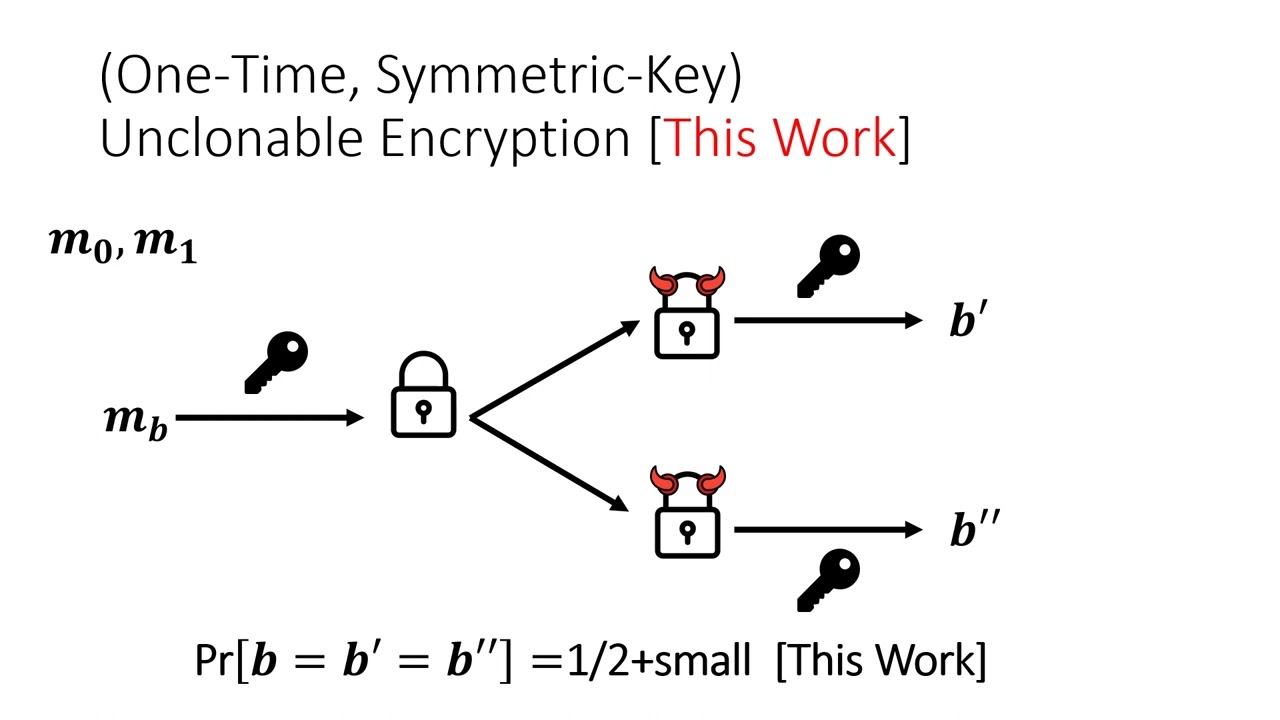Welcome to the resource topic for 2022/884
Title:
On the Feasibility of Unclonable Encryption, and More
Authors: Prabhanjan Ananth, Fatih Kaleoglu, Xingjian Li, Qipeng Liu, and Mark Zhandry
Abstract:Unclonable encryption, first introduced by Broadbent and Lord (TQC’20), is a one-time encryption scheme with the following security guarantee: any non-local adversary (A, B, C) cannot simultaneously distinguish encryptions of two equal length messages. This notion is termed as unclonable indistinguishability. Prior works focused on achieving a weaker notion of unclonable encryption, where we required that any non-local adversary (A, B, C) cannot simultaneously recover the entire message m. Seemingly innocuous, understanding the feasibility of encryption schemes satisfying unclonable indistinguishability (even for 1-bit messages) has remained elusive. We make progress towards establishing the feasibility of unclonable encryption. - We show that encryption schemes satisfying unclonable indistinguishability exist unconditionally in the quantum random oracle model. - Towards understanding the necessity of oracles, we present a negative result stipulating that a large class of encryption schemes cannot satisfy unclonable indistinguishability. - Finally, we also establish the feasibility of another closely related primitive: copy-protection for single-bit output point functions. Prior works only established the feasibility of copy-protection for multi-bit output point functions or they achieved constant security error for single-bit output point functions.
ePrint: https://eprint.iacr.org/2022/884
Talk: https://www.youtube.com/watch?v=-dOqDrYLRac
Slides: https://iacr.org/submit/files/slides/2022/crypto/crypto2022/396/slides.pptx
See all topics related to this paper.
Feel free to post resources that are related to this paper below.
Example resources include: implementations, explanation materials, talks, slides, links to previous discussions on other websites.
For more information, see the rules for Resource Topics .
